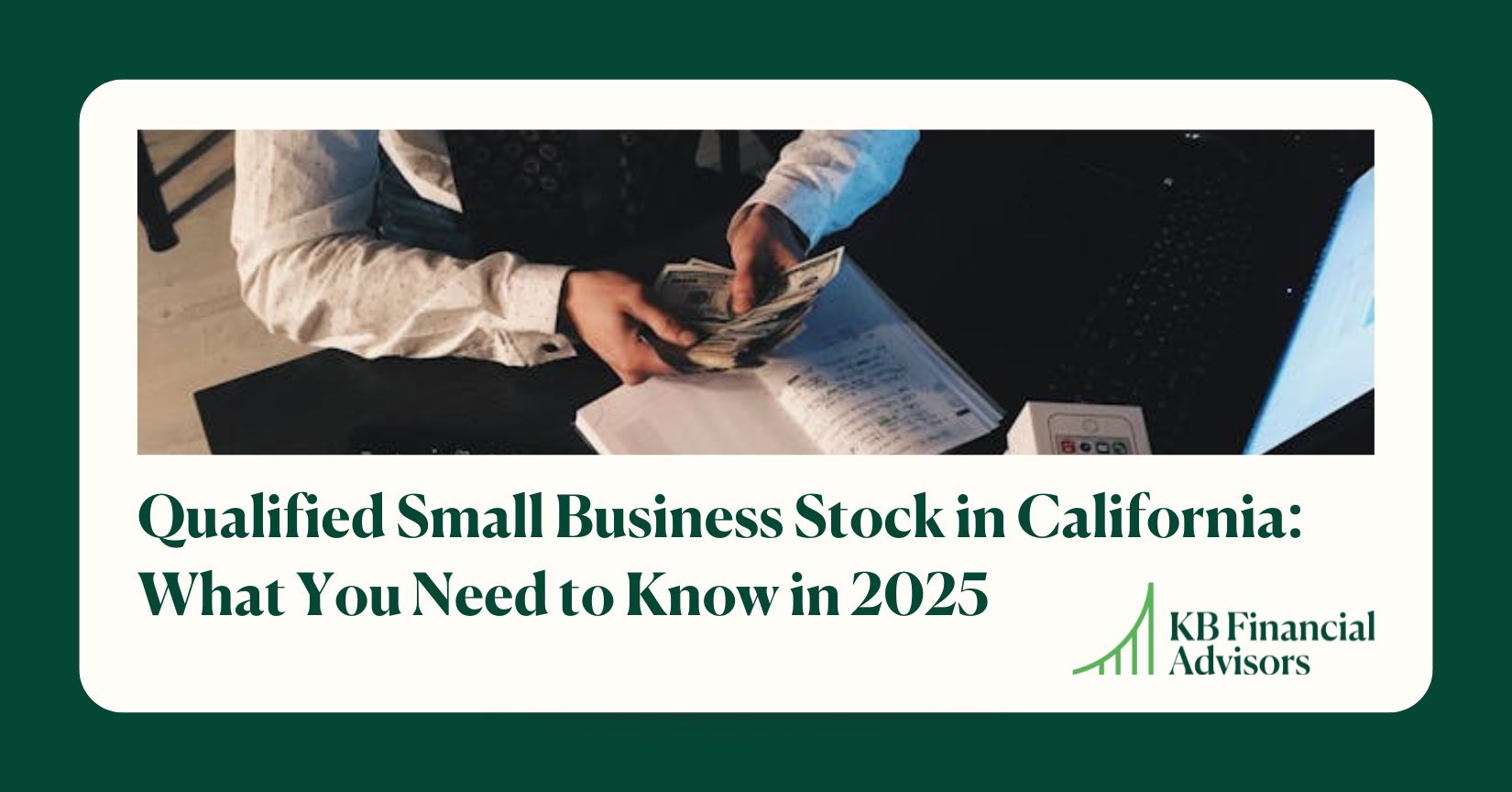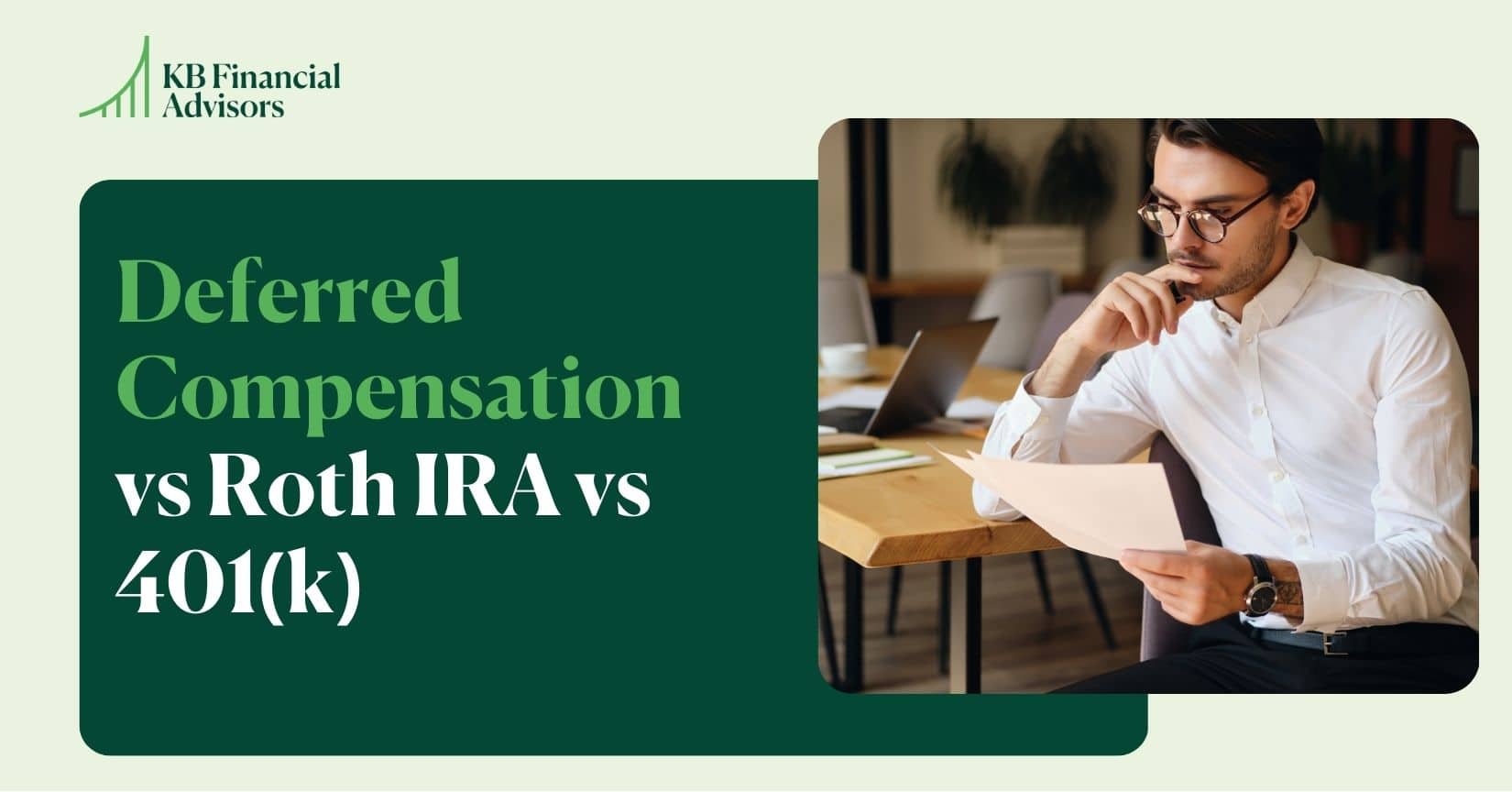If you’re living in California and about to sell stock from a startup, there’s something important you need to know about Qualified Small Business Stock (QSBS).
While the federal government offers generous tax savings under IRC Section 1202, California doesn’t play along.
This blog post explains how qualified small business stock in California is taxed, what your options are, and how to prepare for the tax bill.
We’ve also linked to our full set of QSBS guides if you want to go deeper:
- The QSBS Exemption Overview
- Small Business Capital Gains Exemption
- QSBS Tax Treatment
- QSBS and Stock Options
Let’s dig into how California handles this unique tax situation.
QSBS Is a Federal Benefit – But California Opted Out
Qualified Small Business Stock in California is defined under Internal Revenue Code Section 1202. It allows eligible taxpayers to exclude up to $10 million (or 10 times their investment basis) in capital gains when they sell shares in a qualified small business.
But that tax break only applies to your federal tax return.
California has explicitly said, “No thanks.” The state has chosen not to conform to Section 1202. So while you can benefit at the federal level, California will still tax your gain in full.

There is currently no California exemption for QSBS. You’ll owe taxes on the full amount of your capital gain, and it will be taxed as ordinary income.
How California Taxes QSBS Gains
Here’s the part that often surprises people: Qualified Small Business Stock in California doesn’t get a reduced capital gains tax rate. Instead, all capital gains are taxed as ordinary income.
That means the more you make, the higher your rate goes.
For 2025, California tax brackets go as high as 13.3%. You can view the current brackets here.
If your total income is over $1 million, you’ll also owe an extra 1% mental health services tax. So your total state tax rate on the gain could hit 14.3%.
Let’s put that in perspective. If you sell $10 million worth of QSBS stock and qualify for the federal exclusion, you might owe nothing to the IRS.
But in California, you’ll still owe around $1.4 million in state income tax. Ouch.
The Hotel California Problem: Do You Still Owe If You Move?
One of the most common questions we get is: What if I move to a no-income-tax state like Texas or Florida before selling my stock?
Here’s the rule: Capital gains are taxed based on your state of residence at the time of the sale.
So yes, if you move before you sell, you can potentially avoid California taxes on that gain.
But it has to be a real move. We’re not talking about renting an apartment in Austin for 10 months, selling your Qualified Small Business Stock in California, and then coming back to San Francisco. That kind of move will likely raise red flags and get you audited.
On the other hand, if you moved years ago, bought a house, changed your voter registration, sent your kids to school there, and truly established residency elsewhere, then you’re in the clear.
We call this the Hotel California scenario because, as the song goes, “You can check out anytime you like, but you can never leave.”
At least that’s how the state sees it if you try to move temporarily just to sell stock.
What About Putting QSBS Into a Trust?
Another common question is whether you can avoid California taxes on your Qualified Small Business Stock in California by putting your shares into a trust, say, with a trustee located in Nevada.
It’s a smart question, but the answer depends on who the beneficiary is and where they live when the stock is sold.
If the beneficiary lives in California at the time the trust distributes the proceeds, they will be taxed by California, even if the trustee lives elsewhere. The income flows through to the individual.
In other words, putting Qualified Small Business Stock in California into an out-of-state trust will not help you avoid California taxes if you or your beneficiary still live in California when the money is received.
And let’s be real… no one is setting up a trust and then declining to take the distribution. Everyone wants their money.
So What Can You Do?
Even if you’re stuck with California taxes, you still have options to reduce the impact. Here are three moves we recommend:
1. Make Your Estimated Tax Payments
If you’re expecting a big gain this year, make sure you are sending in your quarterly estimated tax payments to California.
California requires that you pay taxes throughout the year on your Qualified Small Business Stock in California, not just at tax time in April. If you don’t, they’ll charge you penalties and interest, and those numbers can get into the thousands quickly when your income is high.
How is Equity Typically Given to Founders? Here at KB Financial Advisors, we run tax projections for clients to help them stay compliant and avoid penalties. This way, you can pay what’s owed in advance and avoid any nasty surprises later.
2. Time Your Charitable Contributions
If you’re going to donate to charity, do it in the same year you’re recognizing the gain. Why? Because you’ll get a bigger tax benefit when your income is at its peak.
For example, if you sell your Qualified Small Business Stock in California this year and your California tax rate is 13.3%, your donation saves you a lot more than if you spread your giving over the next few years when your income drops and you’re only in the 5% bracket.
You can also consider a donor-advised fund (DAF) to bundle your charitable contributions into one tax year and give over time.
Just remember, we’re talking about gifts to qualified 501(c)(3) nonprofits, not passing shares to your kid.
3. Consider a Graduated Sale Plan—But Be Careful
If it’s possible to structure the sale of your Qualified Small Business Stock in California over several years, you might be able to stay in a lower tax bracket each year and reduce your overall tax bill.
But we always caution clients: cash is king.
Let’s say someone offers you $5 million today versus $1 million per year for five years. That sounds tempting, especially from a tax perspective, but what if the buyer can’t pay the full amount later? What if the business tanks?
If that happens, you’ve lost real money chasing a relatively small tax savings.
We always remind clients: Do not lose a dollar to save ten cents in taxes. The upfront cash can be invested, grown, and used.
It’s almost always better to take the sure thing.
TL;DR: What Can You Expect When Selling Qualified Small Business Stock in California?
If you live in California and plan to sell QSBS stock, here’s the reality:
- You can claim the federal exclusion under Section 1202
- But California will still fully tax the gain as ordinary income
- Tax rates can reach 13.3% or more, depending on your income
- You can’t game the system by moving for a few months or creating out-of-state trusts
- Your best bets are proactive tax planning, charitable giving, and clear-eyed decision-making about your cash options
At KB Financial Advisors, we specialize in helping tech professionals, startup founders, and early employees navigate complex tax scenarios like this one.
If you’re facing a big exit, let’s talk. We’ll help you make the most of your federal savings while preparing for what California throws your way.
Simply use our calendar here to jump on a quick introductory call. It could save you tens of thousands of dollars, if not millions, in the long run.
Until next time!




